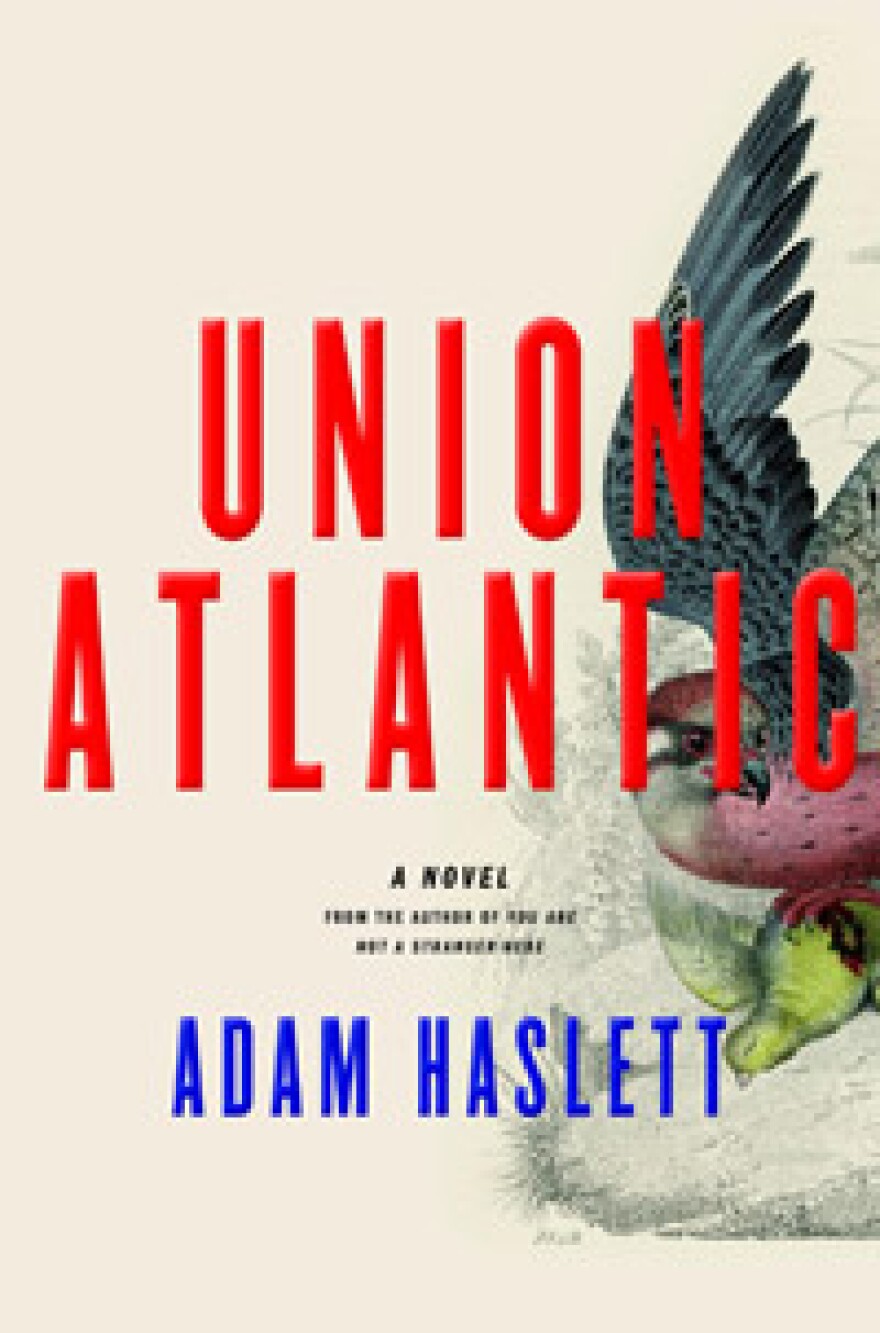Adam Haslett likes old-fashioned novels that take a sweeping look into the corners of society, using carefully imagined characters to explore the relationships between the rich and poor, the powerful and powerless, the good and the bad.
"The idea of the novelist in the world trying to tackle the complexity of contemporary life is something that I take seriously," Haslett says.
And his own debut novel, Union Atlantic, sometimes reads as if Haslett was listening into the private conversations that led to the economic collapse and the bank bailouts that followed.
Yet the remarkable fact is that Haslett finished the novel well before the real-life events took place. In the late '90s, Haslett was reading about the Federal Reserve and some of the economic problems that were just beginning to stir.
"It struck me that there were these people who had enormous amounts of power over the economy, the whole economy," Haslett says. "And yet we didn't really understand what they did, they weren't elected, people didn't have an opportunity to make anyone answer for anything. And, of course, it's easy to make a political judgment about that but as a novelist what I wanted to do was take the reader into those people's minds to find out for myself and then also maybe for the reader what drove people in those positions."
Haslett's first book, the collection of stories You Are Not a Stranger Here, was nominated for both the National Book Award and the Pulitzer Prize. For the follow-up, he came up with the story of a bank on the verge of failing due to a high-risk and highly irregular gamble by of one of its most arrogant and ambitious young lions, Doug Fanning. Stepping in to save the situation is Henry Graves, president of the New York Federal Reserve.
Sections of the book read almost as if they were transcripts of meetings between officials at New York's Fed and failing banks, including one scene in which Henry Graves tells bank officials that Union Atlantic will be allowed to fail rather than being bailed out — a bluff, as it turns out. But Haslett wrote that passage, and others like it, well before most Americans had any idea our major financial institutions could be so vulnerable. And Haslett sounds as surprised as anyone that his fiction dovetailed so neatly with reality.
"It was an uncanny experience," he says. "The week I finished the manuscript and sent it off was the week that Lehman Brothers collapsed. And so I walked in and read the headlines and started reading about these meetings at the Fed in New York with the bankers and I thought to myself, 'Oh yeah, I wrote that scene a year ago.' So, I mean, I felt both scooped and validated at the same time — and a little disoriented."

Haslett says his concern for the book's reception quickly veered toward worry that Union Atlantic would be seen exclusively through the lens of the collapse.
"In a way I think it's about some broader cultural themes about the moral climate in the country and finance was the industry that I picked as a backdrop," he says.
To explore those larger cultural themes, Haslett created the character of Charlotte Graves, a retired history teacher and the sister of Fed chief Graves. Charlotte still lives in their family home, which is now falling apart around her. She is forced to defend not only her real estate but her most cherished beliefs and values when the rogue banker Doug Fanning buys the property next door, tears down the woods that have stood for centuries and builds a huge McMansion. As Fanning's banking career starts imploding, Charlotte wages a legal battle against him and his house.
She watches the world she values — and her emotional investment in her land — betrayed by Fanning. And she lashes out at her brother when he tries to convince her to back down.
"Take a step back for a moment, and look at what's going on in this country," Charlotte tells Henry. "Tell me I'm wrong to want to make a stand. You can't. Not without betraying language, and I think you're better than that."
Just as Charlotte believes in the power of language, so does Haslett. Fiction, he says, gives us the time to contemplate where we are headed.
"The world is so insanely complex and fast and distracting, and one of the things I think a good book can do is slow the reader's attention down a little bit and give them a chance to think through some of the consequences of these changes which otherwise are so quick that all you can do is react," Haslett says.
So is literature the answer?
"It's an ameliorative," Haslett says with a laugh. "I don't think it's an answer, I don't think it will solve our problems but I think how we pay attention to the world matters and if you can spend time inside an imaginative world then there's a calmness and an ability to think."
Copyright 2023 NPR. To see more, visit https://www.npr.org.



